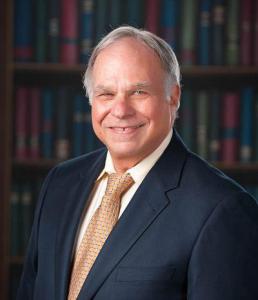Michael D. Finn, Well-Respected Timeshare Attorney, Explains the “Timeshare Developer’s Dilemma”
The founder of Finn Law Group shares his views on a concept called the “Timeshare Developer’s Dilemma.”
LOS ANGELES, CA, UNITED STATES, January 29, 2019 /EINPresswire.com/ -- Michael D. Finn, the founder of Finn Law Group, has been a practicing attorney for over 40 years, working on behalf of consumers with real estate, timeshare and fractional ownership issues. In addition, he’s been able to assist clients with mortgage modifications, foreclosure defense and bankruptcy alternatives. Now, the talented attorney shares his views on a concept called the “Timeshare Developer’s Dilemma.”
“As the marketing segment of the timeshare industry continues to struggle for legitimacy, one axiom of timeshare sales remains too tempting for its marketers to simply shelve,” Finn explains, “The lure of owning real estate remains the “siren song” of timeshare marketing, even if the industry is acutely aware that its less than reputable sales and marketing techniques need to be refined and made more consumer friendly.”
“It is easy to understand why the real estate purchase is simply an easier sell,” continues Finn, “Even after the lessons learned from the 2007 crash, most of us still have almost an imbued sense that real estate, as an investment, is something that, at a minimum, will maintain its value and, perhaps, even appreciate if we buy wisely.”
However, the reality is, that ongoing annual maintenance fees tend to trend upwards, and are always a part and parcel of timeshare “ownership.” How, you may wonder, did the industry get itself in this quandary to begin with? In the earlier days of timeshare, say, from its formation in the U.S. in the 1960s, to the end of the last century, the most usual configuration of timeshare unit ownership was thereby always a deeded piece of real estate. However, a points-based system was established and put into place by exchange banks to quantify the differing value of the different resorts’ locations and times of year. So, perhaps, the interest for a resort in Hawaii during the summer received a value of 3,000 points while the winter of a Missouri resort generated only 800 points. The point system was subsequently adopted by the multi-resort developers beginning in the early 2000s to increase the flexibility of their owners’ vacations.
“This brings us to the sales presentation, and also directly to the tip of the horns of the timeshare developer’s dilemma,” elaborates Finn, “How to continue to create value for selling its timeshare interests, but, at the same time, how to continue including some semblance of ownership into the equation?”
In summary then, the challenge of the timeshare developer is to find a “kinder and gentler” way to market its products and build in greater perceived value in its product to cushion the burden of continuing to impose the annual maintenance fee obligation on its interest holders. “Does the current practice of pitching both real estate ownership combined with the greater freedom and flexibility of the points based, right-to-use strike you as the developers’ attempt to eat its cake and have it remain on their plate too?” Finn concludes, “Isn’t that a bit like the classic bait and switch?”
Aurora DeRose
Aurora DeRose
+1 310-396-6090
email us here
Legal Disclaimer:
EIN Presswire provides this news content "as is" without warranty of any kind. We do not accept any responsibility or liability for the accuracy, content, images, videos, licenses, completeness, legality, or reliability of the information contained in this article. If you have any complaints or copyright issues related to this article, kindly contact the author above.

